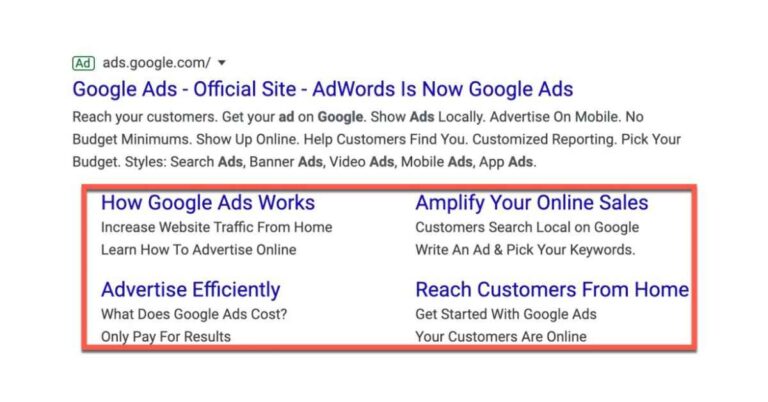Revolutionizing Marketing: The Power of AI in Marketing Strategies
Artificial Intelligence (AI) is revolutionizing the marketing world by constantly evolving and shaping traditional marketing strategies with technological advancements. Today, AI has become an integral part of our marketing toolkit, and we talk about it more frequently. It is changing our perception of marketing strategies, and we are witnessing its significance in the world of marketing.
AI’s introduction to marketing has opened doors to possibilities we couldn’t have imagined before. It’s not merely a disruptor; it’s a game-changer, powering new ways to communicate, engage, and connect with customers.
Embracing and leveraging AI in marketing strategies has become crucial for companies to stay competitive. AI offers the unparalleled advantage of precision, customization, and predictive analysis, simplifying complex marketing challenges.
Understanding AI in Marketing
Artificial Intelligence is revolutionizing the way we perceive computing. With the ability to develop computer systems capable of processing tasks that traditionally require human intelligence, AI transforms how we work and live. These tasks include problem-solving, learning, and understanding language. In marketing, AI refers to using these intelligent systems to automate marketing tasks, analyze consumer data, and create personalized customer experiences.
Critical Components of AI in Marketing
AI in marketing consists of several key components:
1. Machine Learning (ML): AI-enabled systems learn from data and help marketers make data-driven decisions by identifying patterns in customer behavior and predicting outcomes.
2. Natural Language Processing (NLP): NLP focuses on computers understanding and interpreting human language. Marketers can now analyze text and sentiment in social media, websites, and other digital channels and tailor marketing messages accordingly.
3. Computer Vision: This aspect of AI allows computers to process, interpret, and analyze visual information, such as images and videos. This technology can be helpful for marketers for tasks like image recognition, enhancing user experiences, and creating dynamically generated advertisements.
4. Chatbots and Virtual Assistants: AI-powered chatbots and virtual assistants can interact with customers, answer queries, and provide personalized recommendations. These tools can simulate human-like conversations, improving customer engagement and support.
Historical perspective on the integration of AI in marketing
AI’s introduction into marketing dates back to the 1990s when companies started using data and analytics tools to analyze customer data. However, AI in marketing began to significantly impact in the 2010s, with the rise of big data, cloud computing, and improved algorithms. Early adopters harnessed AI’s power to create customized experiences, predict customer preferences, and automate marketing processes.
With its immense potential, AI in marketing has come a long way since its early days. As AI technology advances, its influence on marketing grows, transforming how marketers approach their strategies and interact with customers. Embracing AI in marketing is essential to staying ahead in today’s fast-paced, data-driven world.

Benefits of AI in Marketing
Enhanced customer targeting and segmentation
Artificial Intelligence’s ability to analyze vast amounts of data helps marketers identify patterns and trends, leading to better customer targeting and segmentation. AI can group customers based on their preferences, behaviors, and demographics, enabling marketers to create more tailored and effective campaigns.
Improved personalization and customer experience
AI-powered marketing tools can customize each customer’s content, offers, and recommendations. By providing a personalized experience, businesses can better engage with customers, increase loyalty, and drive conversions.
Data-driven decision-making and analytics
With AI, marketers can make data-driven decisions by harnessing the power of predictive analytics. AI can identify opportunities and risks, helping businesses optimize strategies, allocate resources efficiently, and maximize return on investment (ROI).
Automation of repetitive tasks for increased efficiency
AI can automate repetitive, time-consuming tasks such as data analysis, lead nurturing, and social media management. By freeing up marketers’ time, AI allows them to focus on what truly matters—strategizing and delivering creative marketing campaigns with a human touch.
Real-time insights and adaptability to market changes
AI enables businesses to access and analyze real-time data, allowing them to quickly adapt to changing market conditions. This adaptability helps improve campaigns’ effectiveness and keeps businesses agile and better equipped to respond to competitors’ moves.
AI in marketing empowers businesses to create more targeted campaigns, deliver personalized experiences, and make informed decisions, all while streamlining efficiency. Embracing the benefits of AI in marketing can significantly elevate a company’s ability to connect with its customers and stay ahead in an ever-evolving landscape.
Challenges and Solutions in AI Adoption for Marketing
Data privacy concerns and ethical considerations
One of the significant challenges in harnessing AI in marketing revolves around data privacy and the ethical use of consumer data. To mitigate this, businesses must prioritize transparency in their data practices, obtain explicit customer consent, and adhere to data protection regulations. Incorporating ethical standards in AI algorithms can also help prevent bias and ensure fair trials.
Integration challenges for businesses
Integrating AI into existing marketing operations can be challenging, particularly for businesses not well-versed in technology. Strategy for overcoming this obstacle involves identifying the right AI solutions that align with business goals and fit into the existing tech ecosystem. Collaborating with technology partners to facilitate a smooth digital transition and manage integration complexities would also be advantageous.
Addressing the skills gap in AI adoption
The skills gap is another hurdle, as implementing and leveraging AI requires technical expertise that not all businesses may have. To address this, companies can invest in upskilling their teams or partnering with skilled AI vendors. Continuous learning and staying updated with the evolving AI landscape should be integral to the strategy.
Strategies for overcoming common obstacles
Despite these challenges, overcoming obstacles to AI adoption is manageable with a thoughtful approach. These strategies may include:
- Implementing robust data governance policies
- Collaborating with experienced AI solution providers
- Investing in employee learning and development
- Adopting a step-by-step approach to adopting AI
Future Trends in AI Marketing
Emerging technologies shaping the future of AI in marketing
As we look toward the future of AI in marketing, several emerging technologies promise to shape and revolutionize this domain further. These include:
1. Voice Search and Voice Assistants: With the rising popularity of voice-activated assistants like Alexa, Siri, or Google Assistant, voice search is expected to impact AI marketing strategies significantly.
2. Predictive Analytics: As AI algorithms become more sophisticated, the role of predictive analytics will likely expand, opening more opportunities for businesses to anticipate customer behavior and trends.
3. Augmented Reality and Virtual Reality: AI integrated with AR and VR technologies can offer immersive and personalized marketing experiences that engage customers like never before.
Industry predictions and expert insights
Industry experts predict that AI will remain a key player in marketing in the coming years, with more businesses adopting AI tools for personalized marketing campaigns. AI’s role in hyper-targeting and predictive customer behavior analysis is expected to surge, making marketing more efficient and cost-effective.
The role of AI in the evolution of marketing strategies
The role of Artificial Intelligence in shaping marketing strategies will continue to grow as the technology evolves. AI will streamline marketing automation, increase the precision of customer segmentation, and augment personalized customer experiences. Its ability to analyze vast amounts of data will continue to be harnessed for a valuable understanding of customers, enhancing the effectiveness of marketing strategies.
Guide to Integrating AI into Your Marketing Strategy
Recognizing the Gaps: Start by thoroughly evaluating your current marketing strategy to identify areas that could benefit from AI intervention. This could be inefficiencies in task execution, data analysis difficulties, or audience segmentation and personalization challenges. Understanding the pain points can help pinpoint where AI could bring substantial improvements.
Establishing Concrete Goals: Next, specify the goals you aim to achieve with AI, following the SMART( Specific, Measurable, Achievable, Relevant, Timely) approach. These goals range from better targeting consumers, enhancing personalization, and making data-driven decisions to automating repetitive tasks. The idea is to translate your broad objectives into tangible targets AI can help fulfill.
Selecting Appropriate AI Tools: Once the goals are set, the task is to research and choose the AI solutions that are best suited to your needs. Exploring various AI technologies, their features, capabilities, strengths, and limitations can help identify the one that aligns perfectly with your objectives.
Pilot Testing: Before a full-scale implementation, testing the AI tools on a smaller scale is prudent. This allows you to track how well these tools perform, identify possible glitches, and adjust settings as necessary. This testing phase is critical to ensure your chosen AI tools meet your goals.
Wide-Scale Roll-out and Continuous Monitoring: After adjusting based on the pilot test outcomes, implement the AI solutions across your marketing plan. As the tools become an integral part of your marketing operations, remember to monitor their performance and make improvements as needed continuously.

Tips for Choosing the Perfect AI Tools
Alignment with Objectives: The most effective AI tools for your business would be the ones that can best address your specific needs and align with your defined goals.
Seamless Integration: Look for AI tools that can easily merge with your existing marketing systems and software to ensure optimal performance.
Growth Compatibility: As companies grow, their needs change. It’s crucial to opt for AI tools that demonstrate flexibility and scalability to evolve with your growing business.
Strong Support and Regular Updates: Technology is constantly evolving. Therefore, select tools with robust customer support and frequent updates to keep pace with the rapidly changing tech world.
Illustrative Case Studies of AI-powered Marketing Success
Netflix: Netflix is a prime example of how AI algorithms can significantly enhance customer experience. The platform uses AI to provide users personalized recommendations, resulting in over 80% of the watched content being driven by these recommendations.
Coca-Cola: This global beverage giant leverages AI to supercharge its marketing activities. Coca-Cola has successfully used AI-powered chatbots to boost customer engagement and amplify its interactive marketing campaigns.
Amazon: Amazon’s use of AI to deliver personalized shopping experiences is well-known. The e-commerce giant uses AI to analyze customers’ browsing and purchasing behavior and present them with finely tailored product recommendations, enhancing customer involvement and boosting sales.
Integrating AI into your marketing strategy isn’t just about randomly picking tools; it requires strategic alignment, rigorous testing, and systematic implementation. AI holds extensive potential but delivers fruitful results with a meticulously crafted, goal-oriented plan.
SEO and AI: A Winning Combination
As AI continues to revolutionize the marketing landscape, it’s crucial to understand the vital role SEO plays in this new era. SEO is more important than ever, as search engines are powered by AI algorithms that constantly evolve to deliver the most accurate and relevant results. Search engines use AI, machine learning, and NLP to understand and respond to user queries. Optimizing for search engines enhances content visibility, engagement, and competitiveness in an AI-driven marketing landscape. Search engines use AI, machine learning, and NLP to understand and respond to user queries. Optimizing for search engines enhances content visibility, engagement, and competitiveness in an AI-driven marketing landscape.
How AI enhances SEO efforts
AI is not just changing how search engines operate – it’s also transforming SEO tactics. AI can significantly improve various aspects of SEO, such as:
Keyword Research: AI-enhanced tools can decipher the intent behind user searches, providing more refined keywords and phrases for better optimization.
Content Optimization: AI can analyze user search behavior, identify content gaps, and suggest actionable insights to improve your content’s relevance and value.
Link Building: AI-driven tools can identify high-quality, relevant link-building opportunities and better target audience engagement.
Competitive Analysis: AI-powered SEO tools can offer deep insights into competitors’ strategies and help develop robust counter-strategies.
Conclusion
The transformative power of AI in the marketing landscape cannot be overstated. We’ve seen how it helps personalize customer experiences, enhances data analysis, automates repetitive tasks, and fundamentally changes how businesses interact with customers. From personalized recommendations on Netflix to interactive marketing via Coca-Cola’s chatbots, AI is visibly reshaping the principles of market interaction.
As the success stories of these giants exhibit, AI is not a futuristic luxury— it’s a current necessity. Therefore, businesses are strongly encouraged to embrace AI regardless of size and geography. Integrating AI isn’t about staying updated with the latest trends; it’s about gaining a competitive advantage, maximizing efficiency, and delivering unmatched customer experiences.
Looking ahead, it’s clear that the future of marketing is intertwined with the evolution of AI. As AI technologies advance, they will present even more diverse and sophisticated opportunities for businesses to understand better and serve their customers. While the full potential of AI is yet to be realized, one thing is sure: AI will remain at the heart of marketing innovation for years to come.
So, let’s gear up and embrace this exciting crossroads of technology and marketing because AI isn’t just the future—it’s already here, revolutionizing marketing as we know it.







